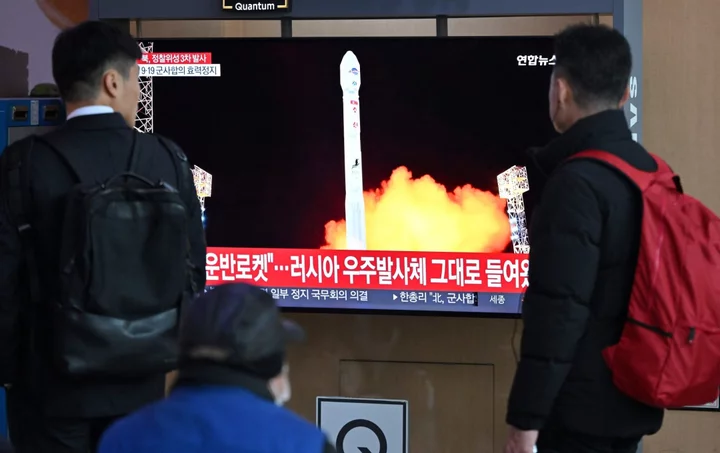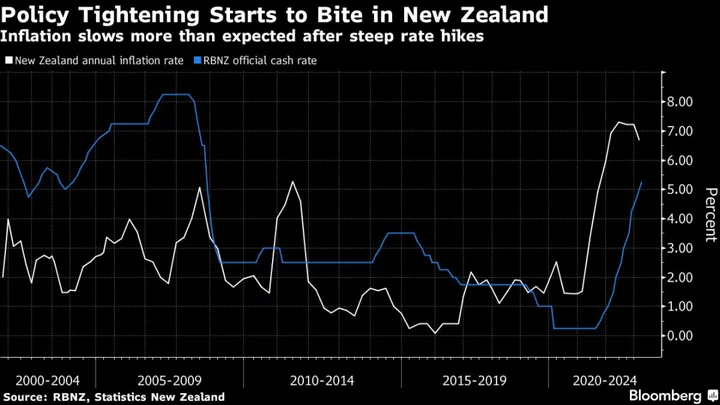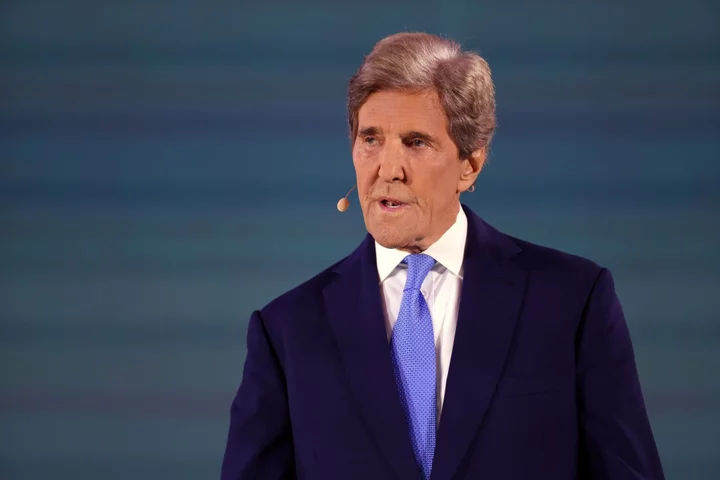North Korea claimed its first spy satellite put into space, which was launched into orbit last week, has taken photos of the White House, Pentagon and nearby US naval stations.
The prominent US sites add to a list of areas North Korea claims to have photographed using its reconnaissance probe that was launched on Nov. 21. The state’s official media said leader Kim Jong Un has seen the latest images along with previous photos of Rome, Anderson Air Force Base in Guam, Pearl Harbor and the US Navy’s Carl Vinson aircraft carrier.
South Korea salvaged one of North Korea’s spy satellites after a failed launch earlier this year and concluded the technology had little military value. While Seoul believes any North Korea satellite would be rudimentary at best, such technology could help Kim’s regime in its targeting as it steps up its ability to deliver a nuclear strike.
Read: South Korea Salvages North’s Satellite in Intelligence Win
North Korea had said the satellite would formally start its reconnaissance mission from Dec. 1 after some fine tuning, but the official Korean Central News Agency said Tuesday: “the fine-tuning process of the satellite is being hastened to end one or two days earlier.”
There has been no confirmation from the outside world on whether the satellite is operational and North Korea has yet to release any images to the outside world taken by its new satellite.
A White House National Security Council spokesperson said the US cannot independently verify the North Korean claim. The spokesperson said the US condemns the launch of a space launch vehicle using ballistic missile technology, calling it a violation of multiple United Nations Security Council resolutions.
North Korea has a history of bluster when it comes to satellite claims. Under the leadership of Kim Jong Il — the father of the current leader — North Korea had said it placed a satellite into orbit that was playing revolutionary songs, only to have Washington say the probe was likely at the bottom of the sea.
--With assistance from Jennifer Jacobs.
(Updates with comments from National Security Council.)









